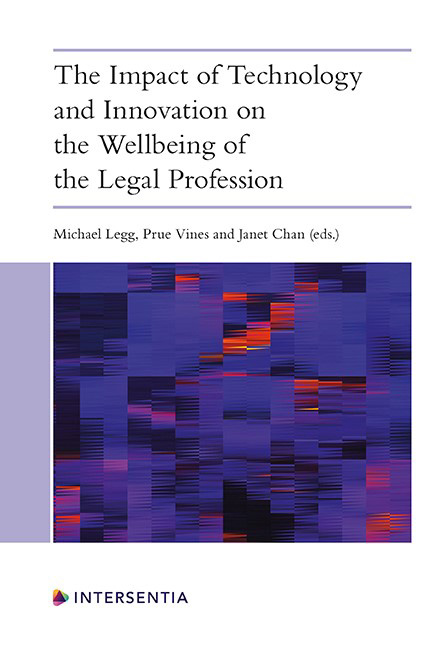Chapter 6 - Law Teachers Speak Out: What do Law Schools Need to Change?
Published online by Cambridge University Press: 22 December 2020
Summary
INTRODUCTION
A significant body of empirical research in Australia and internationally has established that law students‘ wellbeing may significantly decrease during their legal education. Law teachers who interface with students are in a position to contribute to addressing this situation through intentionally designing, enacting and reforming law curricula– at the least to prevent the decline of law student wellbeing, if not positively to promote and support the wellbeing of law students. However, there is a paucity of research on the wellbeing of legal academics and their capacity to support student wellbeing. Indeed, few studies have explored the particular stressors experienced by legal academics in the contemporary neoliberal university, or how legal academics perceive their own wellbeing.
This chapter presents the qualitative results of national surveys of UK and Australian legal academics conducted in 2017, and explores law teachers‘ perceptions of their wellbeing and of their experience of stress at work. First, the authors consider the neoliberal landscape of higher education in the twenty-first century, a landscape that provides the context and framework for how law teachers experience law school as a work environment. Second, the methodology and results of the studies conducted in the UK and Australia in 2017 are explained. Third, the authors discuss the themes presenting from the law teachers‘ responses to the open question: Please explain what you think your university could do to improve staff quality of working life ? The chapter concludes with a suggested to-do list for law school leaders to provide a work environment that better supports the wellbeing of their academics which, in turn, should enhance the capacity of law teachers to support the wellbeing of law students.
THE NEOLIBERAL UNIVERSITY AND LEGAL EDUCATION
The modern neoliberal global context presents many economic, cultural and sociological challenges for the contemporary world. Neoliberalism is a‘socio-economic theory that rejects governmental intervention in the domestic economy and promulgates materialism, consumerism, and the commodification of many public goods‘. Neoliberalism and its impact on contemporary society and workplaces is the subject of a significant body of critical scholarly literature.
- Type
- Chapter
- Information
- Publisher: IntersentiaPrint publication year: 2020
- 2
- Cited by



